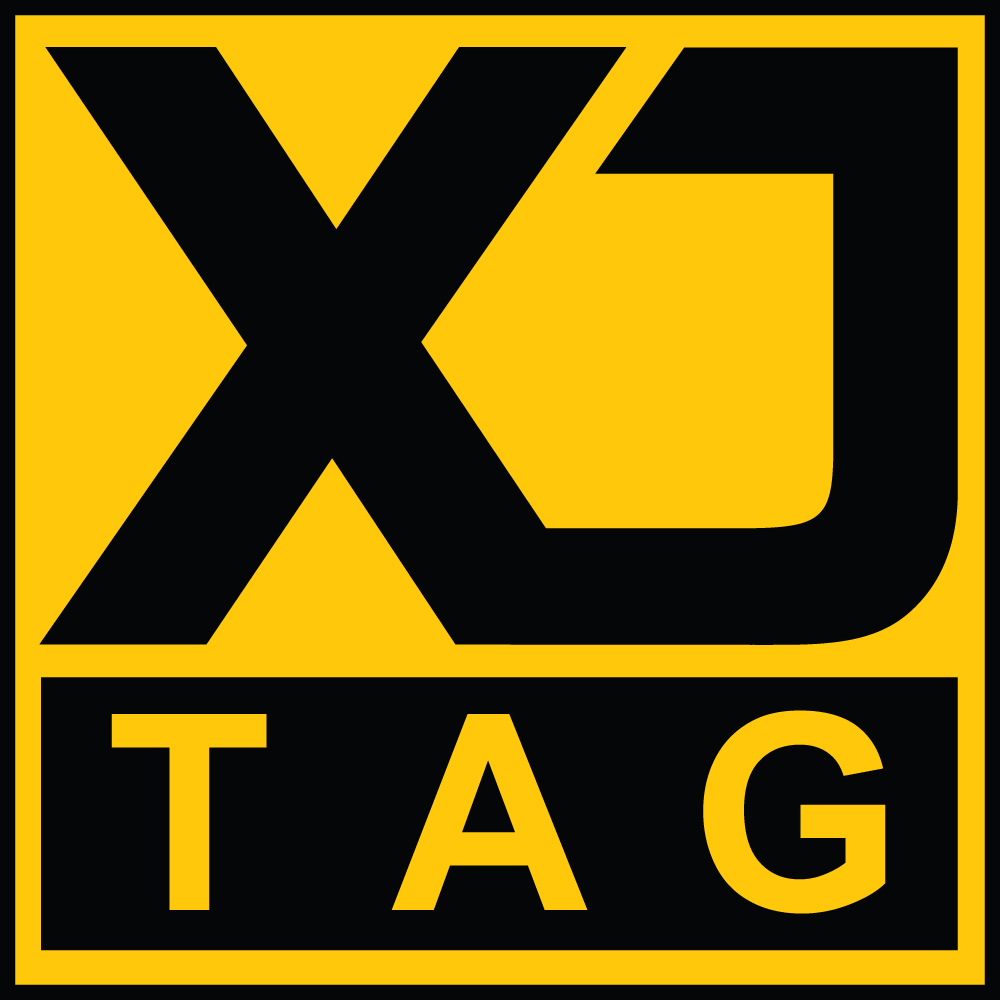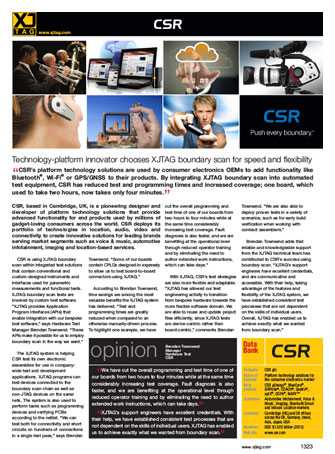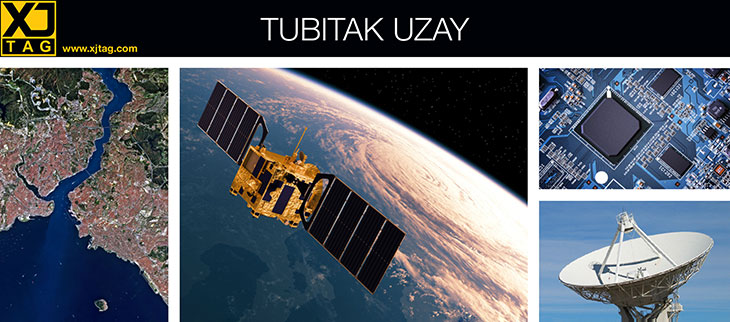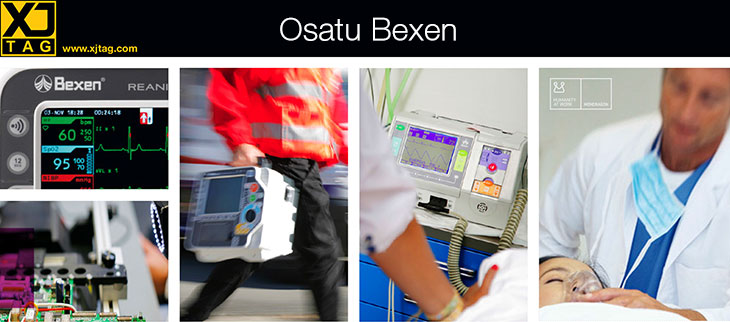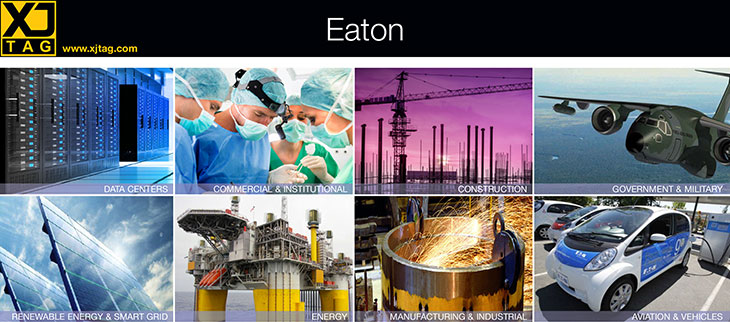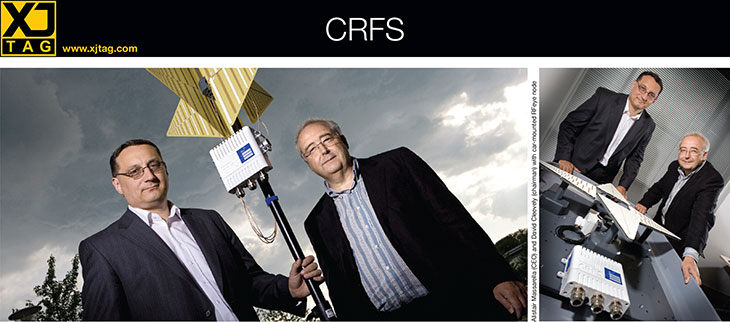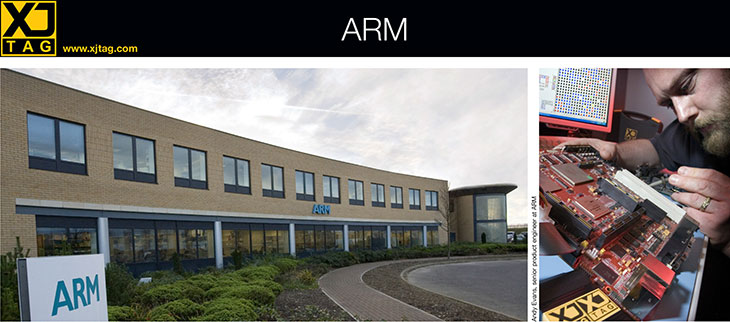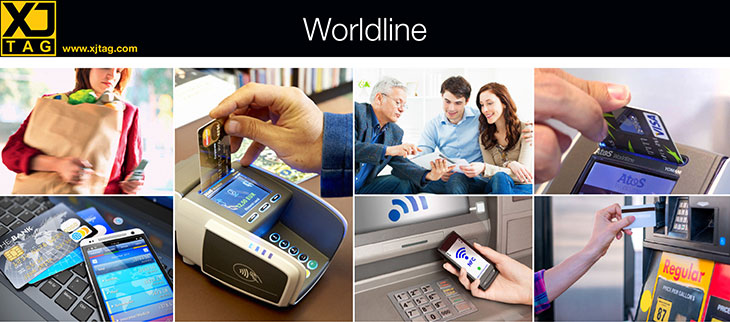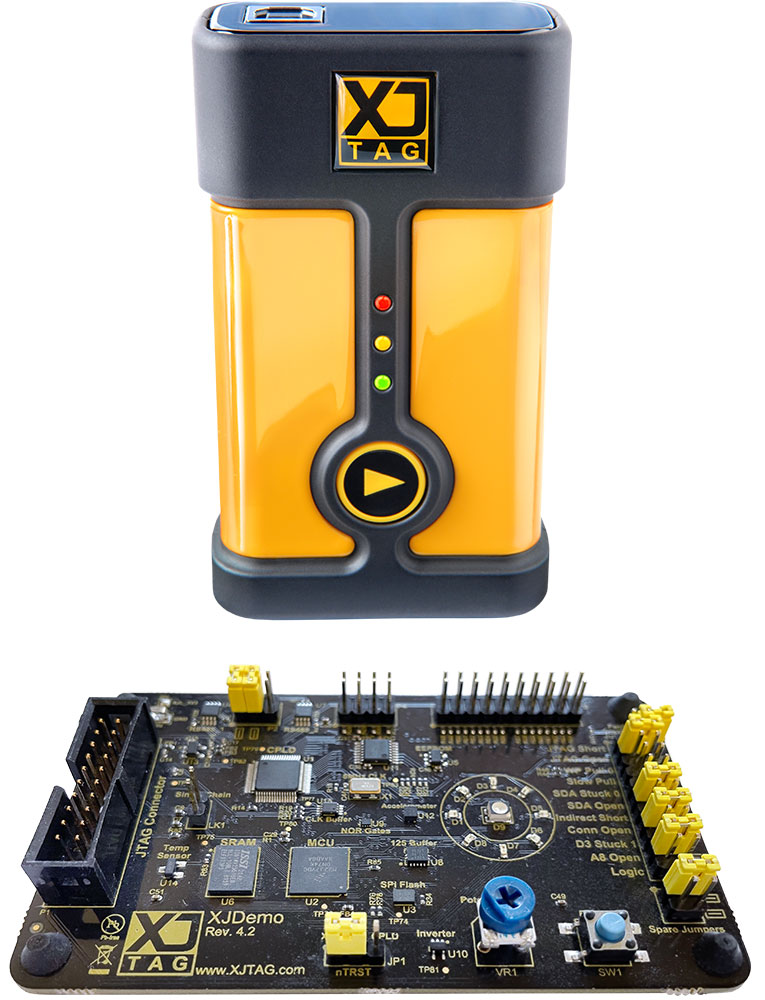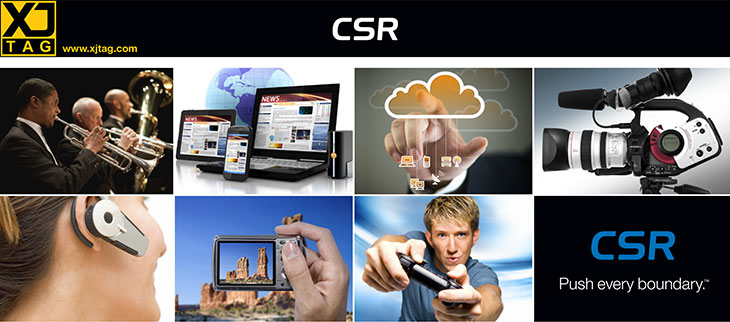
Technology-platform innovator chooses XJTAG boundary scan for speed and flexibility
CSR’s platform technology solutions are used by consumer electronics OEMs to add functionality like Bluetooth®, Wi-Fi® or GPS/GNSS to their products. By integrating XJTAG boundary scan into automated test equipment, CSR has reduced test and programming times and increased coverage; one board, which used to take two hours, now takes only four minutes.
CSR, based in Cambridge, UK, is a pioneering designer and developer of platform technology solutions that provide advanced functionality for end products used by millions of gadget-loving consumers across the world. CSR deploys its portfolio of technologies in location, audio, video and connectivity to create innovative solutions for leading brands serving market segments such as voice & music, automotive infotainment, imaging and location-based services.
CSR is using XJTAG boundary scan within integrated test solutions that contain conventional and custom-designed instruments and interfaces used for parametric measurements and functional tests. XJTAG boundary scan tests are invoked by custom test software. “XJTAG provides Application Program Interfaces (APIs) that enable integration with our bespoke test software”, says Hardware Test Manager, Brendan Townsend. “These APIs make it possible for us to employ boundary scan in the way we want.”
The XJTAG system is helping CSR test its own electronic assemblies for use in company-wide test and development applications. XJTAG programs can test devices connected to the boundary scan chain as well as non-JTAG devices on the same nets. The system is also used to perform tasks such as programming devices and verifying PCBs according to the netlist. “We can test both for connectivity and short circuits on hundreds of connections in a single test pass”, says Brendan Townsend. “Some of our boards contain CPLDs designed-in expressly to allow us to test board-to-board connectors using XJTAG.”
According to Brendan Townsend, time savings are among the most valuable benefits the XJTAG system has delivered. “Test and programming times are greatly reduced when compared to an otherwise manually-driven process. To highlight one example, we have cut the overall programming and test time of one of our boards from two hours to four minutes while at the same time considerably increasing test coverage. Fault diagnosis is also faster, and we are benefiting at the operational level through reduced operator training and by eliminating the need to author extended work instructions, which can take days.”
With XJTAG, CSR’s test strategies are also more flexible and adaptable. “XJTAG has allowed our test engineering activity to transition from bespoke hardware towards the more flexible software domain. We are able to reuse and update project files efficiently, since XJTAG tests are device-centric rather than board-centric”, comments Brendan Townsend. “We are also able to deploy proven tests in a variety of scenarios, such as for early build verification when working with contract assemblers.”
Brendan Townsend adds that reliable and knowledgeable support from the XJTAG technical team has contributed to CSR’s success using boundary scan. “XJTAG’s support engineers have excellent credentials, and are communicative and accessible. With their help, taking advantage of the features and flexibility of the XJTAG system, we have established consistent test processes that are not dependent on the skills of individual users. Overall, XJTAG has enabled us to achieve exactly what we wanted from boundary scan.”

We have cut the overall programming and test time of one of our boards from two hours to four minutes while at the same time considerably increasing test coverage. Fault diagnosis is also faster, and we are benefiting at the operational level through reduced operator training and by eliminating the need to author extended work instructions, which can take days.
XJTAG’s support engineers have excellent credentials. With their help, we have established consistent test processes that are not dependent on the skills of individual users. XJTAG has enabled us to achieve exactly what we wanted from boundary scan.

Company: CSR plc
Nature of business: Platform technology solutions for the consumer electronics market
Main products: CSR µEnergy®, BlueCore®, SiRFstar®, COACH®, Quatro®, aptX®, DDFA®, MAPX™
Customers: Automotive Infotainment, Voice & Music, Imaging, Bluetooth Smart and Indoors Location markets
Location: Cambridge (HQ) and 26 offices across the UK, Germany, Israel, Asia, Japan, USA
Revenues: USD $1.025 billion (2012)
Web site: www.csr.com

Configure your products






